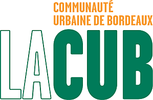- Jeremy Gibbons - University of Oxford, UK
Form Follows Function: Model−Driven Engineering for Clinical Trials
For certain constrained domains,elaborate model transformation technologies - implemented from scratch in general-purpose programming languages - are unnecessary for model-driven engineering; instead, lightweight configuration of commercial off-the-shelf productivity tools suffices. In this talk, we consider the generation of software tools to support clinical trials. A domain metamodel captures the community's best practice in trial design. A scientist authors a trial protocol, modelling their trial by instantiating the metamodel; customized software artifacts to support trial execution are generated automatically from the scientist's model. The metamodel is expressed as an XML Schema, in such a way that it can be instantiated by completing a form to generate a conformant XML document. The same process works at a second level for trial execution: among the artifacts generated from the protocol are models of the data to be collected, and observations are reported by completing a form to create a conformant XML document. Simple standard form management tools are all that is needed.
- Claude Kirchner - INRIA, France
Rewriting, from universality to specificities
Rewriting is a universal language shown a long time ago to be Turing complete. Interestingly, in many situations this universality is restricted to cope with decidability or specific needs and the general language is tuned to get specific features like good properties (e.g. normalisation, strong or not; confluence) or syntactic restrictions (e.g. left linearity, non-ambiguity) or just adaptivity to the context (e.g. semantics, deduction, computation). We will review some of these situations, in particular in relationship with deduction and computation, showing why universality could be a good way to be specific.Rewriting is a universal language shown a long time ago to be Turing complete. Interestingly, in many situations this universality is restricted to cope with decidability or specific needs and the general language is tuned to get specific features like good properties (e.g. normalisation, strong or not; confluence) or syntactic restrictions (e.g. left linearity, non-ambiguity) or just adaptivity to the context (e.g. semantics, deduction, computation). We will review some of these situations, in particular in relationship with deduction and computation, showing why universality could be a good way to be specific.








